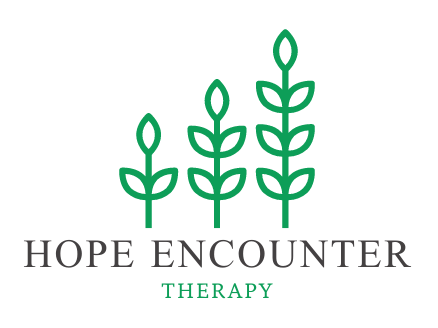Breakups and divorces often signify more than the end of a relationship; they can disrupt our sense of safety, identity, and self-worth. Regardless of whether the ending came as a shock or was anticipated, the emotional aftermath can feel overwhelming. Grief, shame, anger, and confusion can cloud our everyday lives and linger longer than we expect.
EMDR therapy is a proven and effective way to help people heal from intense emotional experiences. This includes the pain that comes from the end of a relationship. It was originally created to treat trauma. Now, many people use EMDR after breakups or divorce, especially when the pain feels deep or connects to older, unresolved issues.
In this post, we will explore how EMDR therapy in Raleigh, NC can help you process the heartbreak of a relationship ending, address core self-worth issues, and begin moving toward clarity, confidence, and emotional freedom.

Why Breakups Hurt So Deeply
Even when a breakup or divorce is “amicable,” the emotional fallout can be intense. That’s because we don’t just lose a partner — we often lose shared routines, dreams, identity roles, a sense of belonging, and sometimes even community or financial stability.
For many, the ending also reactivates old wounds, such as:
- Abandonment fears
- Childhood attachment injuries
- Patterns of people-pleasing or self-sacrifice
- Beliefs of being “not enough” or “too much”
These deeper layers of pain are rarely resolved on their own over time. EMDR offers a structured and compassionate approach for fully processing both the immediate heartbreak and the deeper emotional issues that the breakup has triggered.
EMDR Therapy: A Brief Overview
Eye Movement Desensitization and Reprocessing (EMDR) is a trauma-focused therapy that utilizes bilateral stimulation, such as eye movements or tapping, to help the brain process and release disturbing memories and beliefs.
During an EMDR session, clients recall distressing experiences while simultaneously focusing on rhythmic stimulation. This process helps the brain “digest” unprocessed emotions and memories that are stuck, allowing for the detection of emotions and cognitive reprocessing.
What makes EMDR unique is that it doesn’t require the retelling of painful stories over and over again. Instead, it helps shift the way those stories are stored in your nervous system, turning reactive patterns into resolved ones.
How EMDR Helps After a Breakup or Divorce
Let’s explore how EMDR can support recovery and growth following the end of a significant relationship.
-
Processing Grief and Emotional Pain
EMDR therapists can assist clients in navigating the stages of grief more smoothly by addressing the most painful moments, such as betrayal, the final argument, or the day you moved out. These memories often become “frozen” in the nervous system and replay like a loop, resulting in chronic sadness or anger.
Through EMDR, these painful experiences are less emotionally charged, with clients frequently reporting a sense of relief, greater peace, and reduced triggers from reminders of their ex-partner.
-
Resolving Trauma and Betrayal
Suppose the relationship involved emotional abuse, gaslighting, infidelity, or abandonment. In that case, it can lead to trauma-like symptoms such as hypervigilance, anxiety, self-doubt, or difficulty trusting others. EMDR helps address these relational traumas by revisiting key moments, identifying limiting beliefs (e.g., “I’m not lovable” or “I deserved this”), and transforming them into more balanced, compassionate truths.
This is particularly powerful for individuals who find themselves stuck in painful relationship patterns or who tend to “pick the same partner in a different body.
-
Repairing Self-Worth and Identity
After a painful breakup, many people experience identity confusion and a decline in self-worth. EMDR targets the root of these feelings, often tracing back to childhood messages and experiences that shape our self-perception in relationships.
By reprocessing early relational wounds and the negative beliefs associated with them, clients begin to reconnect with a stronger, more authentic sense of self, one that is not defined by past partners or relational pain.
-
Breaking Free from Rumination and “What-If” Loops
It’s common to feel haunted by regret, self-blame, or fantasies about how things could have gone differently. EMDR helps quiet these obsessive thoughts by targeting the moments and beliefs that sustain them. For example, processing the memory of “the moment I knew it was over” can lessen its emotional grip, allowing acceptance to take root.
Many clients report their obsessive thoughts slow down—and eventually stop—after just a few sessions of focused EMDR work.
-
Building Hope for Future Relationships
One of EMDR’s strengths lies in its ability not only to alleviate pain but also to help you build something better in its place. In the latter phases of EMDR therapy, clients establish new beliefs such as “I can trust myself again” or “I am worthy of healthy love.”
These affirming truths are not just positive thinking; they are emotionally grounded in the nervous system through the EMDR process. This prepares you not only to survive your breakup but also to thrive in the aftermath.

When to Consider EMDR After a Breakup
You may benefit from EMDR therapy after a breakup or divorce if you:
- Feel stuck in overwhelming emotions months (or years) later
- Struggle with intrusive memories or flashbacks from the relationship
- Experience a significant decline in self-esteem
- Repeatedly find yourself in similar unhealthy relationship patterns
- Feel paralyzed by guilt, shame, or “what-if” thoughts
Whether the breakup is recent or occurred long ago, it’s never too late to heal the wounds it left behind.
Healing Is Possible With EMDR Therapy
Breakups and divorces may leave scars, but they also serve as turning points—opportunities to rediscover who you are, reclaim your voice, and heal wounds that long predate the relationship. EMDR therapy offers a proven and compassionate approach to achieving this.
If you’re struggling to move on from a painful relationship, consider seeking support. Healing doesn’t mean forgetting; it means reclaiming your peace, power, and the potential for what comes next.
Ready to begin your healing journey? Contact Hope Encounter Therapy at emdr@HopeEncounterTherapy.com or call 919-335-3420 to schedule a free 15-minute consultation. You don’t have to go through this alone.

Heal From Heartbreak, Identity Loss, and Healing With EMDR Therapy in Raleigh, NC
If you’re feeling stuck in grief, shame, or painful memories after a breakup or divorce, you’re not alone. At Hope Encounter Therapy, we offer compassionate support and proven tools to help you process the past and reclaim your sense of self. Reach out today to explore how EMDR therapy in Raleigh, NC can guide your healing journey forward. Follow these three simple steps to get started:
- Contact us for a free consultation.
- Meet with one of our skilled EMDR therapists.
- Begin to heal from heartbreak!
Additional Services Offered at Hope Encounter Therapy
At Hope Encounter Therapy, we’re dedicated to helping individuals, children, and families navigate the healing journey with personalized, compassionate care. While EMDR therapy is an effective approach for processing the pain of breakups and divorce, we also provide a range of additional modalities to support your full emotional recovery. These include Somatic Experiencing, Narrative Therapy, and Cognitive Processing Therapy (CPT), allowing us to customize treatment based on your specific needs. We also provide individual counseling sessions. Whether you’re beginning your own path to healing or assisting someone you care about, our services—and resources like our blog—offer meaningful guidance, tools, and support along the way.


